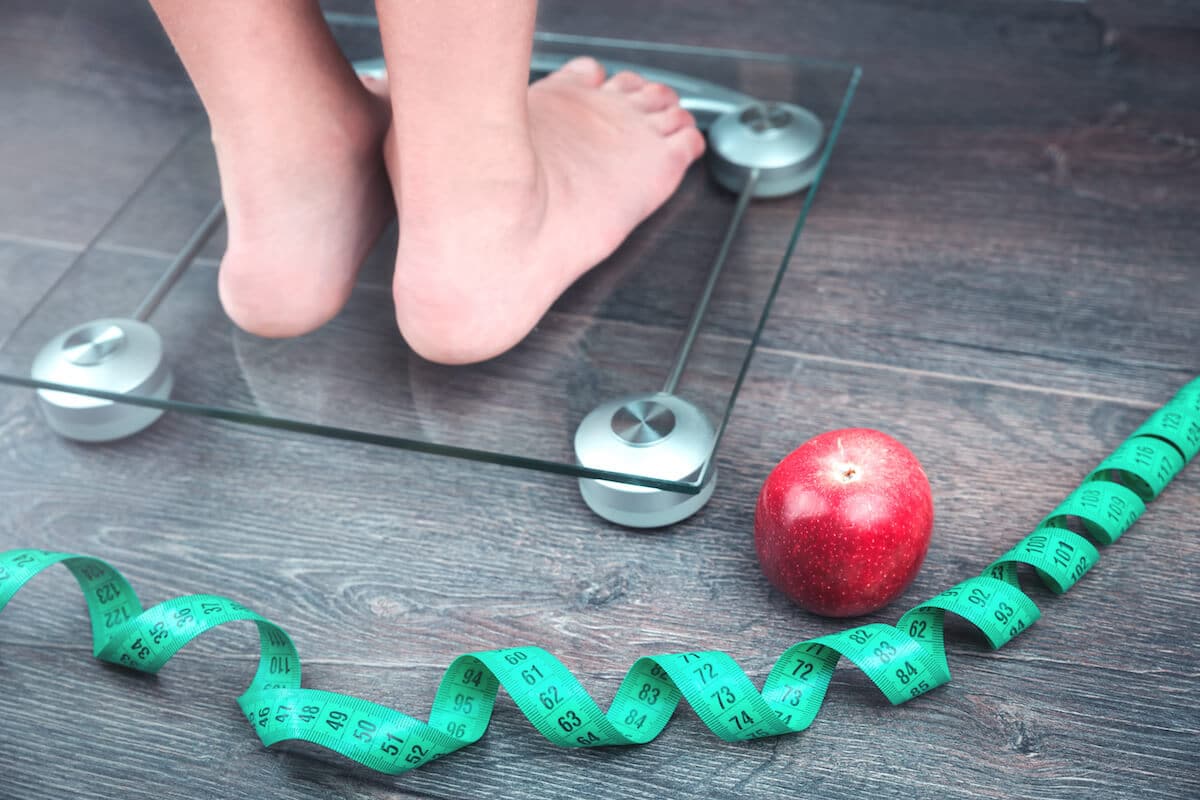
10 Dec Meal Frequency: How Often Should You Eat?
There’s a lot of conflicting information surrounding how often you should eat. You’ll find sources and nutritionists supporting everything from eating one big meal per day to small meals every three hours. Some say the number of meals doesn’t matter, while others believe that meal frequency is everything. So, how often should you eat, and who should you believe?
The answer depends on your personal goals and health. And it’s always best to consult your healthcare provider or dietitian before making changes to your current diet.
In this guide, we’ll look at the question “How often should you eat?” through the lens of nutrition science, highlighting important factors to consider.
How Often Should You Eat?
There’s no perfect meal frequency that will fit everyone’s health and goals. However, research has shown links between meal frequency and changes in body weight, athletic performance, and various health conditions, to name a few.
We’ll start by looking at how each of these elements relates to establishing an ideal eating pattern.
Weight Management

One of the first factors to consider is whether you’re eating for fat loss or weight gain. According to a 2017 research study from Loma Linda University School of Public Health, meal timing is linked to changes in your BMI, or body mass index.
Your BMI measures your body weight based on your height and weight. When you gain weight, your BMI increases, and when you lose weight, it decreases. BMI is a useful tool for researchers when studying the average weight of patients. However, please note that the BMI has important flaws and should not be used as a concrete marker of health. It does not measure lean body mass nor does it consider ethnic differences.
According to the study, the following eating habits were associated with a higher BMI:
- Eating more than three times per day
- Eating larger meals at dinner
An earlier 2014 study found that skipping breakfast is linked to obesity. To compare, the following eating habits were associated with a lower BMI in the 2017 study:
- Eating just one or two meals per day
- Eating breakfast
- Making breakfast or lunch the largest meal of the day (Note: Making breakfast the largest meal of the day yielded a more significant decrease in BMI than lunch)
- Intermittent fasting for up to 18 hours
Based on this information, eating a large breakfast and a regular-sized lunch every day, then skipping dinner and avoiding snacks, might be an appropriate weight loss strategy. Likewise, eating more than three meals per day with a large dinner could be a suitable weight gain strategy.
However, conflicting information does exist. For example, a 2011 study found a link between increased meal frequency and weight loss maintenance. This directly contradicts the link between a lower BMI and eating just one or two meals per day.
Other Weight Management Factors to Consider
If you want to know how often you should eat for weight loss, remember that it’s not only about whether or not you eat breakfast. Biologically speaking, weight loss and weight gain are determined by your food intake, activity levels, and metabolic rate.
Your total calorie intake, calories burned while exercising, and BMR (basal metabolic rate) all contribute to weight loss and weight gain. For the purpose of this article, we’ll focus on the dietary factor of calorie intake.
Calories refer to units of energy, and in reference to food, the calorie content refers to how much energy one serving will give your body. When your body runs out of energy from food, it metabolizes your fat stores to keep functioning. And when this happens, you lose weight.
As such, you must burn more calories than you eat to lose weight and eat more calories than you burn to gain weight. In short, eating less is considered the most effective way to lose weight or prevent weight gain.
You may have heard the phrase “calories in versus calories out.” Calorie intake is the bottom line according to many nutrition experts. While many other factors do matter, weight loss consistently correlates with reduced caloric intake.
However, eating too few calories can send your body into starvation mode. This reduces your metabolic rate and interferes with weight loss. Without the supervision of a healthcare professional, a minimum of 1,200 calories is necessary for overall health and wellness.
Physical Performance

If you’re an athlete or follow a regular exercise routine, monitoring your macronutrients and meal timing could help improve your energy levels and performance. Nutrition experts often provide athletes with nutrient timing recommendations when approaching a competition. However, the ideal diet for an athlete is not much different from the recommended diet for an average healthy person.
Athletes often eat smaller meals before exercise or competitions, but their main focus is timing nutrients appropriately for exercise or competitions. Athletes also use supplements to make it easier to get their nutrients at the appropriate time. If you’re an athlete, learning more about improving your performance can help you find the perfect diet strategy.
Nutrient timing for athletes is generally reliant on three phases, including:
Energy Phase
This phase refers to the time before and during physical exertion. In the energy phase, a protein-rich meal with carbohydrate supplementation helps provide energy during exercise.
Anabolic Phase
This phase refers to the 45-minute window following physical exertion. In the anabolic phase, a carbohydrate-rich meal with protein supplementation helps the muscles recover while boosting protein synthesis.
Growth Phase
This phase refers to the remainder of the day after physical exertion. In the growth phase, meals with quality protein, complex carbohydrates (e.g., whole grains), and healthy fats support recovery and growth.
How Often Should You Eat For Physical Performance?
The International Society of Sports Nutrition (ISSN) supports the importance of nutrient timing for athletes. However, the ISSN also maintains that there is no conclusive link between meal frequency and body composition, body weight, satiety, metabolism, or other markers of health.
As you experiment with meal frequency, pay attention to how you feel while exercising. Adjusting your food choices and meal timing for physical performance often comes down to listening to your body. Additionally, a nutrition expert or healthcare professional can help you identify which meal frequency works best for you.
Health Conditions
Health conditions such as heart disease, low blood sugar (hypoglycemia), and high cholesterol may impact your ideal eating schedule. It’s best to work with your doctor or dietitian if you have any health conditions that are reliant on or related to your diet.
For example, a hypoglycemia diet may call for eating small meals every three hours. This would rule out options like intermittent fasting, which could interfere with maintaining even blood sugar levels. On the other hand, intermittent fasting might help lower glucose levels and improve insulin sensitivity in those with insulin resistance or prediabetes.
Furthermore, some meal frequency plans may cause problems for certain individuals. For example, fasting for those with gallbladder issues may not be advisable as regularly fasting for more than 16 to 18 hours may cause gallstones.
Deciding How Often to Eat

Since there is no consensus on the best meal frequency for physical health, it’s up to you to decide how often you should eat. There are also personal factors to consider, such as cravings and overeating.
If you often succumb to cravings when you’ve gone several hours without food, frequent small meals and healthy snacks could keep you on track with your meal plan. Alternatively, if a large meal in the morning and a modest lunch help you stay within your calorie goals, it could be the key to your wellness plan.
If you have weight loss or weight gain goals, approach meal frequency accordingly and adjust as needed. Remember, eating more than three times per day, with larger meals at dinner, is associated with a higher BMI. On the other hand, eating just one of two meals per day with breakfast as the largest meal (and up to an 18-hour fasting period) is associated with a lower BMI.
For example, if you’re aiming for weight loss or management, Loma Linda University researchers recommend the following as a practical strategy:
- Eat breakfast
- Eat lunch
- Skip dinner
- Avoid snacks
- Make breakfast the largest meal of the day
- Fast overnight for up to 18 hours (Note: Always consult your healthcare provider before adding fasting to your routine)
On the other hand, a meal plan for weight gain might focus on more frequent meals with no fasting. Additionally, protein shakes can support weight gain, and building muscle mass can assist with weight gain goals as well. When approaching weight gain, it’s best to speak with your doctor about safe ways to gain weight.
The Bottom Line: Your Health Matters Most
The answer to how often you should eat is complicated but not impossible. It comes down to considering your weight management goals, physical activity, existing conditions, and overall health. Fewer meals per day could be ideal for weight loss, but healthy eating habits should always come first. Also, you should never eat fewer than 1,200 calories per day without the supervision of a healthcare professional.
Regardless of your weight goals or the ideal number of meals per day, your health matters most. Speak with your doctor or dietitian to get expert advice on the best meal frequency for you. Alternately, ask your doctor or dietitian for help monitoring your health as you experiment with different meal plans.
If you struggle with skipping meals or finding time for your ideal number of meals each day, protein supplements can be useful. Ingredient Optimized supplements such as ioPea Protein, ioWhey Protein, and Kaged Muscle Clean Meal can make it easier to stay on track with a busy schedule.


